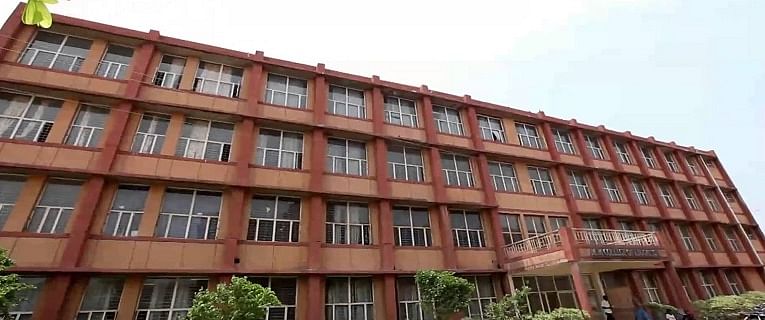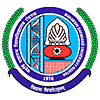HBSE Class 12 Physics Latest Syllabus 2025-26: Download Latest and Revised HBSE Class 12th Physics Syllabus PDF
Table of Contents
The HBSE Class 12th Physics syllabus contains Electrostatics, Current Electricity, Magnetic Effects of Current and Magnetism, Electromagnetic Induction and Alternating Currents, Electromagnetic Waves, Optics, Dual Nature of Radiation and Matter, Atoms and Nuclei and Electronic Devices.
The HBSE Class 12th Physics Syllabus is divided into 9 units and the syllabus is designed with amendments by the Haryana Board of School Education. HBSE 12th Class Physics syllabus aims to explain the core concepts that students must learn over the academic year. This syllabus will also help a student concentrate on the relevant sections, which help prepare for any board exams that may be presented to the student.
HBSE Class 12th Physics Syllabus
This HBSE Class 12th Physics Syllabus has been developed to ensure that the learners have an overall grasp of various elementary and advanced physics layers. A wide range of topics is covered in this syllabus, starting from Electrostatics, Current electricity, Magnetism, & electromagnetic waves to Electronics & Modern physics for the generation of more electronic devices.
Every unit is designed to enhance the learner’s level of knowledge, exposing them to the mathematical and theoretical aspects of physics and enabling them to put the knowledge acquired into practice. By using the units that have full knowledge and important units that one must study during the preparation of the HBSE Class 12 Physics exam, the learners will pass, including the final examinations, without any hurdles.
Below, you will find the details of the HBSE Class 12th syllabus of Physics for HBSE as given in the syllabus.
| Unit Name | Chapter Name | Topics Included |
| Unit 1: Electrostatics | Chapter 1: Electric Charges and Fields | Electric charge, Coulomb’s law, Electric field due to a system of charges, Electric dipole, Gauss’s law, Applications of Gauss's law. |
| Chapter 2: Electrostatic Potential and Capacitance | Electrostatic potential, Potential energy of a system of charges, Capacitors, Parallel plate capacitor, Effect of Dielectric, Combination of capacitors, Energy stored in a capacitor. | |
| Unit 2: Current Electricity | Chapter 3: Current Electricity | Electric current, Drift velocity, Ohm’s law, Limitations of Ohm's law, Resistivity, EMF, Internal resistance, Kirchhoff's rules, Wheatstone bridge, Cells in series and parallel. |
| Unit 3: Magnetic Effects of Current and Magnetism | Chapter 4: Moving Charges and Magnetism | Magnetic field, Lorentz force, Biot-Savart law, Ampere's law, Solenoid, Torque on current-carrying loop, Moving coil galvanometer. |
| Chapter 5: Magnetism and Matter | Magnetic properties of materials: Diamagnetism, Paramagnetism, Ferromagnetism, Bar magnet as an equivalent solenoid, Earth’s magnetic field. | |
| Unit 4: Electromagnetic Induction and Alternating Currents | Chapter 6: Electromagnetic Induction | Faraday’s law of induction, Lenz's law, Self and mutual inductance, Energy stored in an inductor, AC generator, Motional EMF. |
| Chapter 7: Alternating Current | RMS value of alternating current, AC circuit with resistors, capacitors, inductors, Power factor, Transformers. | |
| Unit 5: Electromagnetic Waves | Chapter 8: Electromagnetic Waves | Displacement current, Electromagnetic spectrum: Radio waves, Infrared waves, Visible light, X-rays, Gamma rays. |
| Unit 6: Optics | Chapter 9: Ray Optics and Optical Instruments | Reflection, Refraction, Total internal reflection, Lens formula, Power of a lens, Optical instruments (Microscope, Telescope). |
| Chapter 10: Wave Optics | Huygens’ principle, Interference, Young’s double-slit experiment, Diffraction, Polarization, Malus law. | |
| Unit 7: Dual Nature of Radiation and Matter | Chapter 11: Dual Nature of Radiation and Matter | Photoelectric effect, Wave-particle duality, Einstein’s photoelectric equation, De-Broglie wavelength. |
| Unit 8: Atoms and Nuclei | Chapter 12: Atoms | Rutherford's atomic model, Bohr's model, Energy levels, Hydrogen spectrum. |
| Chapter 13: Nuclei | Nuclear structure, Mass-energy equivalence, Binding energy, Radioactivity, Nuclear fusion and fission. | |
| Unit 9: Electronic Devices | Chapter 14: Semiconductor Electronics | Semiconductors, Diodes, Transistors, Rectifiers, Energy bands, P-N junctions, Applications of semiconductors in circuits. |
Read More: HBSE Class 12th Sample Papers 2026
HBSE Class 12th Physics Syllabus - PDF Download
The exact HBSE Class 12th Physics Syllabus PDF file can be obtained from the official website of the Board of School Education Haryana (BSEH). Here is the direct link to the latest HBSE Class 12 Physics syllabus:
| HBSE Class 12th Physics Syllabus PDF | Download Now |
How to Download HBSE Class 12th Physics Syllabus?
The steps to be followed to download the HBSE Class 12th Physics Syllabus are given below:
- Official Site: - The official site of the Haryana Board of School Education services is www.bseh.org.in.
- Find Syllabus: Locate the “Student Corner” or ‘Downloads’ section. Look for the Syllabus or Curriculum link.
- Select the Class and Subject: Go to the syllabus section and click “Class 12” to widen the options. Following, click Physics, requisitioning the physics syllabus for the current academic session.
- How to Get the PDF: Having located the needed link on the Physics syllabus, tap on it to help you get the PDF file. Alternatively, you can download it on your device.
Read More: HBSE Class 12th Exam Pattern
Important Topics for HBSE Class 12th Physics Syllabus
The syllabus created for HBSE Class 12 in Physics students has several important topics, details of which are provided in terms of the specific marks allocated for them when writing the final paper.
Knowing the weightage of each chapter allows the students to plan their study schedules more reasonably. Here is a list of major units and chapters, as the marks distribution:
| Sr. No. | Unit | Chapter | Marks |
| 1 | Electrostatics | Electric Charges and Fields | 8 |
| Electrostatic Potential and Capacitance | |||
| 2 | Current Electricity | Current Electricity | 8 |
| 3 | Magnetic Effects of Current and Magnetism | Moving Charges and Magnetism | 9 |
| Magnetism and Matter | |||
| 4 | Electromagnetic Induction and Alternating Currents | Electromagnetic Induction | 8 |
| Alternating Current | |||
| 5 | Electromagnetic Waves | Electromagnetic Waves | 3 |
| 6 | Optics | Ray Optics and Optical Instruments | 14 |
| Wave Optics | |||
| 7 | Dual Nature of Radiation and Matter | Dual Nature of Radiation and Matter | 5 |
| 8 | Atoms and Nuclei | Atoms | 8 |
| Nuclei | |||
| 9 | Electronic Devices | Semiconductor Electronics: Materials, Devices, and Simple Circuits | 7 |
| Total | 70 | ||
| Practical Examination | 30 |
Read More: HBSE 12th Date Sheet 2026
Best Books for HBSE Class 12th Physics Syllabus
Candidates pursuing HBSE Class 12 are collecting the appropriate target material to prepare for the Physics exam.
The following are some of the best-recommended books that are useful to students:
1) Physics (Bhautik Vigyan) by SBPD
This book is specially prepared per the Haryana Board pattern and written in simpler language. It comprises every unit and every chapter along with a simplified explanation of popular topics such as Electrostatics, Current Electricity, Optics, and solved problems and practice questions.
2) Handbook of Physics by Arihant
The practical handbook with well-structured information has gained popularity among students, especially during examinations when important information is reviewed.
- It contains essential equations, information core to understanding major subjects, and definitions that are beneficial when quickly going over some information.
- This is handy when one needs to revise topics such as electromagnetic waves or more practical topics like magnetic effects of currents and radiation and matter interactions.
- Considering such books will aid them in grasping the theoretical concepts better and practicing how to do calculations so that they are ready to sit for the HBSE 12th Physics examination.
Read More: HBSE Class 12th Syllabus 2026
Preparation Tips for HBSE Class 12th Physics Syllabus
The most important preparation tips and trick for HBSE class 12th physics syllabus is outlined below for candidates to make the museum to score well in the exams
- After most of the analysis, examine the components of the total marks available and the unit courses that carry a high percentage of the total scores. The units, for example, on Optics, scored 14 marks, 8 in Electrostatics, and 9 marks in Magnetic Effects, reinforcing the conclusions of frugality. Tackle such units first; through these, understand each detail required before proceeding to different units.
- Physics involves many diagrams (like electric field lines, circuits, etc.) and derivations (like the equation of motion of a charge in a magnetic field). These are scoring areas if presented well in the exam. Practice drawing these diagrams neatly, and ensure you understand each step in derivations so you can reproduce them quickly during the exam.
- If dealt with at ease, examination patterns and solved questions of the sample papers of HBSE should be done at this stage. You will be well aware of the structure of the examination and the form in which questions are posed. Ensure that you listen carefully to the areas of the topics that have been repeatedly written. This will also assist you in the judicious use of time for paper writing in a real situation.
- Numericals have a lot of weightage in Class 12 Physics, where Current Electricity, Magnetic Effects, and Electromagnetic Induction are concerned. It is important to get the derivation of these formulas and then practice the numerical regularly. Identify your weaknesses and do something towards them. Ask for help from teachers or peers when stuck. The more you practice, the more confident you are likely to be.
- It can be more fun and even easier to remember Physics concepts if there are physics concepts that one applies to real-life scenarios. Thus, when allowing students to study Electromagnetic Waves, they should consider how radios, microwaves, and X-rays operate. Hence, fun will be derived from the topic as much information is expected to be discussed there.
- Don’t neglect the practical portion, which carries 30 marks. Ensure you understand each experiment, procedure, and expected outcome. Practice writing the observations and conclusions concisely. Preparing well for practicals is an easy way to boost your overall score.
- With the coming examinations, arrange a timetable for your revision period so that the most critical areas are dealt with regularly. For management exams, structuring and revising all derived formulas, the important concepts, and their application will shorten study time. It is proven that it is not good to put all revisions at the final moment to do everything quickly.
Read More: HBSE 12th Registration Form 2026




























